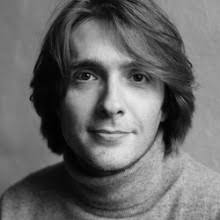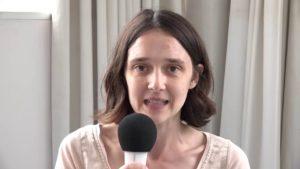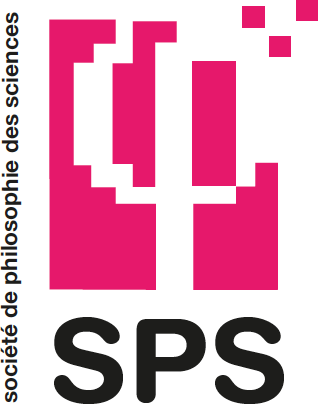Prix JCJC
« Jeunes chercheurs et jeunes chercheuses »
La Société de philosophie des sciences organise depuis dix ans le Prix Jeunes chercheurs et jeunes chercheuses (JCJC). Initialement remis tous les ans, ce Prix est désormais attribué une fois tous les deux ans et est remis lors du congrès bi-annuel de la SPS.
Le Prix JCJC récompense un-e doctorant-e ou un-e jeune docteur-e (thèse soutenue depuis 7 ans maximum) pour une contribution dans le domaine de la philosophie des sciences. Les candidat-e-s peuvent soumettre un article de leur choix, en français ou en anglais, publié au maximum depuis trois ans ou non publié. Les candidat-e-s ayant déjà soumis une contribution lors des éditions précédentes peuvent, s’ils ou elles sont toujours éligibles, proposer de nouveau un article, différent ou non de celui qu’ils ou elles ont proposé précédemment. L’évaluation de chaque article est réalisée en double-aveugle par des experts du sujet traité. A la lumière de ces évaluations, un jury composé par des membres du conseil d’administration de la SPS procède au classement des soumissions et attribue le Prix.
10e édition 2024-2025
La Société de philosophie des sciences organise la 10eme édition de son Prix Jeunes chercheurs et jeunes chercheuses. Ce Prix récompense un(e) doctorant(e) ou un(e) jeune docteur(e) (thèse soutenue en 2018 ou après) pour une contribution dans le domaine de la philosophie des sciences.
Les candidat(e)s doivent faire parvenir avant le 30 avril 2025 à SPSjeuneschercheurs@gmail.com un article de leur choix, en français ou en anglais, publié en 2022 ou après, ou non-publié, et anonymisé. Les candidat(e)s ayant déjà soumis une contribution lors des éditions précédentes peuvent, s’ils sont toujours éligibles, proposer de nouveau un article, différent ou non de celui qu’ils ont proposé.
L’évaluation de chaque article sera réalisée en double-aveugle par des expert(e)s du sujet traité. À la lumière de ces évaluations, un jury composé par des membres du conseil d’administration de la SPS procédera au classement des soumissions et informera les auteurs et les autrices au mois de septembre 2025. La composition du jury et les noms des évaluateurs et des évaluatrices seront affichés sur le site de la Société peu avant la remise du prix lors du prochain congrès de la SPS, en 2025 (date à déterminer).
Le Prix « Jeunes chercheurs et jeunes chercheuses » est doté de 500 euros pour le lauréat ou la lauréate. Aux auteurs et autrices des cinq meilleures contributions seront offerts les frais d’une cotisation annuelle à la SPS. La liste de ces contributions, avec une présentation de leur auteur ou de leur autrice et un résumé de l’article, sera affichée sur le site de la Société. Le jury proposera, en outre, les meilleures soumissions non encore publiées pour une publication dans Lato Sensu, revue de la Société de philosophie des sciences (https://ojs.uclouvain.be/index.php/latosensu).
Pour toute question, merci de nous contacter via SPSjeuneschercheurs@gmail.com Bien cordialement,
Laurie Letertre, Frida Trotter et Lucie Boël
(Vice-présidentes « jeunes chercheurs et jeunes chercheuses »)
pour le Bureau de la SPS
—
Dear all,
It is our pleasure to share the call for submissions for the next edition of the Prize for Young Researchers 2024-25 of the Francophone Society for the Philosophy of Science.
Important deadlines:
• Submission: 30th April 2025
• Notification of the Prize recipients: September 2025
The Society for the Philosophy of Science (https://www.sps-philoscience.org) is organising the 10th edition of its Prize for Young Researchers. This Prize rewards a doctoral student or a young doctor (thesis defended in 2018 or later) for a contribution in the domain of philosophy of science.
Candidates must send an anonymised article of their choice, in French or in English, unpublished or published in 2022 or later, before 30th April 2025 to SPSjeuneschercheurs@gmail.com. Candidates who have already submitted a contribution in previous editions may, if still eligible, re-submit the same article or a different one.
The evaluation of each article will be carried out in a double-blind process by experts in the subject matter. In the light of these evaluations, a jury composed of members of the Board will rank the submissions and inform the authors of the results in September 2025. The composition of the jury and the names of the evaluators will be posted on the Society’s website shortly before the award is presented at the next SPS Congress in 2025 (date to be determined).
The winner of the Prize for Young Researchers is awarded with 500 Euros.
The authors of the five best contributions will be offered the cost of the annual membership to the SPS. The list of the winning contributions, including the authors’ names and a summary of the article will be posted on the Society’s website. In addition, the jury will propose the best submissions for publication in Lato Sensu, a journal of the Society for the Philosophy of Science (https://ojs.uclouvain.be/index.php/latosensu).
If you have any questions, please contact us via SPSjeuneschercheurs@gmail.com
Yours sincerely,
Laurie Letertre, Frida Trotter, and Lucie Boël
(Vice-presidents « young researchers”)
for the SPS Board
9e édition 2022-2023
La SPS a le plaisir d’annoncer que la lauréate du Prix Jeunes Chercheurs et Jeunes Chercheuses 2022-23, organisé par Frida Trotter, Laurie Letertre et Youna Tonnerre est :
Sarah Hijmans (PhD 2023, Université Paris-Cité, SPHERE) pour son article « Analogy and composition in eartly nineteenth-century chemistry: the case of aluminium » publié dans European journal for philosophy of science. https://link.springer.com/article/10.1007/s13194-021-00442-w

Les finalistes du prix sont:
2ème : Silvia de Cesare (Université de Genève), “Values in evolutionary biology: a comparison between the contemporary debate on organic progress and Canguilhem’s biological philosophy”
3ème : Constant Bonard (Institut Jean Nicod), “Emotions represent evaluative properties unconsciously (at least)”
4ème : Quentin Rodriguez (Université Clermont Auvergne), “Idealizations and Analogies: Explaining Critical Phenomena”
5ème : Erica Onnis (Université de Turin), “Between Armaments and Ornaments. Weak and Strong Emergent Patterns in Virtual and Real Cellular Automata”
42 articles ont été soumis pour ce prix, dont 16 par des femmes. La SPS remercie les 84 évaluateurs et évaluatrices:
Marina P Banchetti, Bernadette Bensaude-Vincent, Arantza Exteberria, Jay Odenbaugh, Liz Paul, Samuel Lepin, Jessica Wilson, Christian Sachse, Michael Heumann, Emmanuel Picavet, Mathieu Corteel, Éric Gagnon, Florian Scotté, Marie-France Mamzer, Philippe Gross, Frédéric Plassard, Alexandre Guay, Fabrice Correia, Ingo Brigandt, Caterina Marchionni, Guillaume Köstner, Christian Sachse, Rune Nyrup, Marc Lange, Mike Stuart, Peter Langland-Hassan,, Tiziano Ferrando, Ketty McKenzie, Sandra Laugier, François Schmitz, Sebastian Lutz, Alexander Bird, Federico Benitez Conte, Michele Loi, Thierry, Menissier, Maël Pegny, Samuel Schindler, Karim Thébault, Cristian López, Dennis Dieks, Richard Dawid, David Wallace, Andrea Oldofredi, Niels Linnemann, Tim Maudlin, Louis Marchildon, Claudio Calosi, Diego Maltrana, James Read, Nicholas Teh, Maxime Bertoux, Fabrice Clement, Rémi Clot, Goudard, Michael Esfeld, Mona Gérardin-Laverge, Manon Him-Aquilli, Alexander Klein, Michael Esfeld, Andrew Sims, Javier Sánchez Cañizares, Kathleen Perry Long, Paul-Antoine Miquel, Kim Sterelny, Arvid Ågren, Michele Luchetti, Antonine Nicoglou, Oystein Linnebo, Elaine Landry, Charles Alunni, Marco Panza, Liran Razinsky, Gertrudis Van de Vijver, Liz Irvine, Robert W. Elwood, Peter Zachar, Arnauld Plagnol, Peter Kinderman, Elisabetta Basso, Manuel Rebuschi, Melissa Allé, Denis Perrin, Sarah Robins, Ben Baker, Georg Northoff.
8ème édition 2019-2020 :
La SPS a le plaisir d’annoncer que le lauréat du Prix Jeunes Chercheurs et Jeunes Chercheuses 2020 est :
Matthias Michel (Centre for Philosophy of Natural and Social Science, LSE) pour son article « Consciousness Science Underdetermined » publié dans le journal Ergo, 2019–2020, volume 6 (28), journal en accès libre.
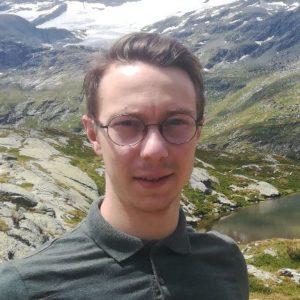
Les autres finalistes étaient, par ordre alphabétique :
– Vincent Grandjean (Université de Genève), pour l’article « How is the asymmetry between the open future and the fixed past to be characterized? », publié dans, Synthese, 2019. (en accès ici)
– Baptiste Le Bihan (Université de Genève) & Niels Linnemann (Université de Brême), pour l’article « Have We Lost Spacetime on the Way? Narrowing the Gap between General Relativity and Quantum Gravity », publié dans, Studies in History and Philosophy of Modern Physics, 2019, volume 65, February: 112-121. (lien vers HAL)
– Pietro Milici (Université de Bretagne Occidentale), pour l’article « A differential extension of Descartes’ foundational approach: A new balance between symbolic and analog computation » publié dans, Computability, 2020, vol. 9 (1) : 51-83. (lien vers arXiv)
– Joulia Smortchkova (Université d’Oxford) pour l’article « Seeing Goal-Directedness: A Case for Social Perception » publié dans, The British Journal for the Philosophy of Science, 2020, volume 71 (3): 855–879. (accessible sur philpapers)
Voir infra pour les résumés
Au total, 32 articles étaient en compétition pour cette 8ème édition du Prix JCJC.
Comité de sélection :
Cédric Brun (Université Bordeaux-Montaigne)
Valeria Giardino (Institut Jean Nicod)
Alexandre Guay (Université catholique de Louvain)
Cyrille Imbert (Archives Henri-Poincaré)
Julie Jebeile (Universität Bern)
Francesca Merlin (IHPST)
Ivahn Smadja (Université de Nantes)
Pierre Saint-Germier (Université catholique de Louvain)
Comité d’organisation :
Vincent Ardourel (IHPST)
Youna Tonnerre (Université de Rennes 1)
avec le soutien régulier de Francesca Merlin (IHPST)
Comité scientifique :
Daniel Andler (Sorbonne Université)
Andrew Arana (Université de Lorraine)
André Ariew (University of Missouri)
Anouk Barberousse (Sorbonne Université)
Michel Bourdeau (IHPST)
Thomas Boyer-Kassem (Université de Poitiers)
Anastasios Brenner (Université Paul Valéry-Montpellier)
Cédric Brun (Université Bordeaux-Montaigne)
Nicolas Chaigneau (Université Lumière Lyon-2)
Olivier Darrigol (SPHERE)
Nadine De Courtenay (Université de Paris)
Steeves Demazeux (Université Bordeaux Montaigne)
Filipe Drapeau Contim (Université de Rennes 1)
Sébastien Dutreuil (Centre Gilles Gaston Granger)
Michael Esfeld (Université de Lausanne)
Enrica Galazzi (Università Cattolica di Milano)
Valeria Giardino (Institut Jean Nicod)
Yves Gingras (Université du Québec à Montréal)
Alexandre Guay (Université catholique de Louvain)
Thierry Hoquet (Université Paris Nanterre)
Florence Hulak (Université Paris 8 Vincennes – Saint-Denis )
Paul Humphreys (University of Virginia)
Cyrille Imbert (Archives Henri-Poincaré)
Julie Jebeile (Universität Bern)
François Kammerer (Ruhr-Universität Bochum)
Max Kistler (Université Paris 1 Panthéon-Sorbonne)
Vincent Lam (Universität Bern)
Robin Lamarche-Perrin (LIP6)
Lucie Laplane (IHPST)
Céline Lefève (Université de Paris)
Maël Lemoine (Université de Bordeaux)
Tim Lewens (University of Cambridge)
Sacha Loeve (Université Lyon III Jean Moulin)
Christophe Malaterre (Université du Québec à Montréal)
Johannes Martens (SND)
Thierry Martin (Université de Franche-Comté)
Francesca Merlin (IHPST)
Mélika Ouelbani (Université de Tunis)
Françoise Parot (Université de Paris)
Cédric Paternotte (Sorbonne Université)
Annie Petit (Université Paul Valéry-Montpellier)
Stéphanie Ruphy (École Normale Supérieure)
Christian Sachse (Université de Lausanne)
Pierre Saint-Germier (Université catholique de Louvain)
Jutta Schickore (Indiana University)
Ivahn Smadja (Université de Nantes)
Pierre Wagner (Université Paris 1 Panthéon-Sorbonne)
(Si cette liste contient une erreur, veuillez contacter le comité d’organisation)
Résumés des articles
Matthias Michel, « Consciousness Science Underdetermined: A short history of endless debates »
Résumé : Consciousness scientists have not reached consensus on two of the most central questions in their field: first, on whether consciousness overflows reportability; second, on the physical basis of consciousness. I review the scientific literature of the 19th century to provide evidence that disagreement on these questions has been a feature of the scientific study of consciousness for a long time. Based on this historical review, I hypothesize that a unifying explanation of disagreement on these questions, up to this day, is that scientific theories of consciousness are underdetermined by the evidence, namely, that they can be preserved “come what may” in front of (seemingly) disconfirming evidence. Consciousness scientists may have to find a way of solving the persistent underdetermination of theories of consciousness to make further progress.
*
* *
Par ordre alphabétique
Vincent Grandjean, « How is the asymmetry between the open future and the fixed past to be characterized? »
Résumé : A basic intuition we have regarding the nature of time is that the future is open whereas the past is fixed. For example, whereas we think that there are things we can do to affect how the future will unfold (e.g. acting in an environmentally responsible manner), we think that there are not things we can do to affect how the past unfolded (“what is done is done”). However, although this intuition is largely shared, it is not a straightforward matter to determine the nature of the asymmetry it reflects. So, in this paper, I survey various philosophical ways of characterizing the asymmetry between the ‘open future’ and the ‘fixed past’ in order to account for our intuition. In particular, I wonder whether the asymmetry is to be characterized in semantic, epistemic, metaphysical or ontological terms. I conclude that, although many of these characterizations may contribute to a global understanding of the phenomenon, an ontological characterization of the asymmetry is to be preferred, since it is superior to the alternatives in explanatory power, intelligibility, and in how it coheres with interesting senses of openness.
Baptiste Le Bihan & Niels Linnemann, « Have We Lost Spacetime on the Way? Narrowing the Gap between General Relativity and Quantum Gravity »
Résumé : Important features of space and time are taken to be missing in quantum gravity, allegedly requiring an explanation of the emergence of spacetime from non-spatio-temporal theories. In this paper, we argue that the explanatory gap between general relativity and non-spatio-temporal quantum gravity theories might significantly be reduced with two moves. First, we point out that spacetime is already partially missing in the context of general relativity when understood from a dynamical perspective. Second, we argue that most approaches to quantum gravity already start with an in-built distinction between structures to which the asymmetry between space and time can be traced back.
Pietro Milici, « A differential extension of Descartes’ foundational approach: A new balance between symbolic and analog computation »
Résumé : In La Géométrie, Descartes proposed a “balance” between geometric constructions and symbolic manipulation with the introduction of suitable ideal machines. In modern terms, that is a balance between analog and symbolic computation. Descartes’ geometric foundational approach (analysis without infinitary objects and synthesis with diagrammatic constructions) has been extended beyond the limits of algebraic polynomials in two different periods: by late 17th century tractional motion and by early 20th century differential algebra. This paper proves that, adopting these extensions, it is possible to define a new convergence of machines (analog computation), algebra (symbolic manipulations) and a well determined class of mathematical objects that gives scope for a constructive foundation of (a part of) infinitesimal calculus without the conceptual need of infinity. To establish this balance, a clear definition of the constructive limits of tractional motion is provided by a differential universality theorem.
Joulia Smortchkova, « Seeing Goal-Directedness: A Case for Social Perception »
Résumé : This paper focuses on social perception, an area of research that lies at the interface between the philosophy of perception and the scientific investigation of human social cognition. Some philosophers and psychologists appeal to resonance mechanisms to show that intentional and goal-directed actions can be perceived. Against these approaches, I show that there is a class of simple goal-directed actions, whose perception does not rely on resonance. I discuss the role of the STS (superior temporal sulcus) as the possible neural correlate of perception of goal-directed actions. My proposal is intermediate between claims according to which we perceive intentional actions and claims according to which we cannot perceive goal-directed actions.
7ème édition 2017-2018 :
La SPS a le plaisir d’annoncer que le lauréat du Prix Jeunes Chercheurs 2017-18 est :

Antoine Dussault (CIRST & Collège Lionel-Groulx, Montréal), pour son article « Functional Ecology’s Non-Selectionist Understanding of Function » publié dans Studies in History and Philosophy of Biological and Biomedical Sciences (2018, 70, pp.1-9)
2èmes ex-aequo :
Valeriya Chasova (Université Catholique de Louvain), pour son article « Local symmetries with direct empirical status, gauge symmetries, and the empirical approach« ;
Gauvain Leconte (Lycée de l’Europe, Dunkerque) pour son article « Predictive success, partial truth and Duhemian realism » publié dans Synthese (2017, 194, Issue 9, pp 3245–3265)
(voir infra pour les résumés)
Liste des évaluateurs :
– Anouk Barberousse (Université Paris-Sorbonne)
– Anastasios Brenner (Université Montpellier
– Angelo Cei (Università Roma 3)
– Hasok Chang (Université of Cambridge)
– Mikaël Cozik (Université Paris 12)
– Carl Craver (Washington University in St. Louis)
– Denis Couvet (MNHN Paris)
– Olivier Darrigol (SPHERE, CNRS & Université Paris 7)
– Jean-Paul Delahaye (Université Lille 1)
– David Depew (The University of Iowa)
– Richard-Emmanuel Eastes (SEGALLIS)
– Denis Forest (Université Paris 1 Panthéon-Sorbonne)
– Steven French (University of Leeds)
– Elodie Giroux (Université Jean Moulin Lyon 3)
– Alexei Grimbaum (CEA-Saclay)
– Niccolo’ Guicciardini (Università di Bergamo)
– Brice Halimi (Université Paris Nanterre )
– Gerhard Heinzmann (Université de Lorraine)
– Thierry Hoquet (Université Paris Nanterre)
– Paul Humphreys (Université of Virginia)
– Philippe Huneman (IHPST, CNRS & Université Paris 1)
– Max Kistler (IHPST, CNRS & Université Paris 1)
– Cyrille Imbert (Archives Poincaré, CNRS & Université de Lorraine)
– James Ladyman (University of Bristol)
– Guillaum Lecointre (MNHN Paris)
– Maël Lemoine (Université de Bordeaux)
– Laurent Loison (IHPST, CNRS & Université Paris 1)
– Alex Manafu (York University Toronto)
– Virginie Maris (CEFE, CNRS)
– Pierre-Olivier Méthot (Université Laval)
– Matteo Morganti (Università La Sapienza Roma)
– Olivier Morin (MPI-SHH Jena)
– Matteo Mossio (IHPST, CNRS & Université Paris 1)
– Gerd Müller (University of Vienna)
– Antonio Nunziante (Università di Padova)
– Marie-Hélène Parizeau (Université Laval)
– Cédric Paternotte (Université Paris-Sorbonne)
– Thomas Pradeu (CNRS & Université de Bordeaux)
– Sophie Roux (ENS Paris)
– Stéphanie Ruphy (Université Jean Moulin Lyon 3)
– Julien Reiss (Durham University)
– Christian Sachse (Université de Lausanne)
– Stéphane Schmitt (SPHERE, CNRS & Université Paris 7)
– Kathryn Tabb (Columbia University)
– Serife Tekin (Daemen College, Buffalo NY)
– Giovanni Valente (Pittsburgh University)
– Mark Van Atten (SND, CNRS)
– Marion Vorms (Université Paris 1 Panthéon-Sorbonne)
– Pierre Wagner (Université Paris 1 Panthéon-Sorbonne)
– Denis Walsh (University of Toronto)
– Charles Wolfe (Ghent University)
Jury final :
– Cyrille Imbert (Archives Poincaré, CNRS & Université de Lorraine)
– Maël Lemoine (Université de Bordeaux)
– Francesca Merlin (CNRS & Université Paris 1)
L’organisation du prix et la supervisation de l’évaluation des soumissions sont l’oeuvre de Francesca Merlin.
Résumés des articles primés :
– Antoine DUSSAULT (CIRST & Collège Lionel-Groulx, Montréal), »Functional Ecology’s Non-Selectionist Understanding of Function » publié dans Studies in History and Philosophy of Biological and Biomedical Sciences (2018, 70, pp.1-9)
Résumé. This paper reinforces the current consensus against the applicability of the selected effect theory of function in ecology. It does so by presenting an argument which, in contrast with the usual argument invoked in support of this consensus, is not based on claims about whether ecosystems are customary units of natural selection. Instead, the argument developed here is based on observations about the use of the function concept in functional ecology, and more specifically, research into the relationship between biodiversity and ecosystem functioning. It is argued that a selected effect account of ecological functions is made implausible by the fact that it would conflict with important aspects of the understanding of function and ecosystem functional organization which underpins functional ecology’s research program. Specifically, it would conflict with (1) Functional ecology’s adoption of a context-based understanding of function and its aim to study the functional equivalence between phylogenetically-divergent organisms; (2) Functional ecology’s attribution to ecosystems of a lower degree of part-whole integration than the one found in paradigm individual organisms; and (3) Functional ecology’s adoption of a physiological or metabolic perspective on ecosystems rather than an evolutionary one.
– Valeriya CHASOVA (Université Catholique de Louvain) pour son article « Local symmetries with direct empirical status, gauge symmetries, and the empirical approach »
Résumé. I use the empirical approach to the direct empirical status (DES) to clarify the question of which theoretical symmetries have DES. I prove in particular that if a global symmetry has the identifiable observational DES by virtue of representing observable features of an identifiable empirical symmetry, then using gauge symmetries a local symmetry with the same DES can always be constructed. I explain why this demonstrates that currently we should take local symmetries to be at least as much relevant for the ontology as global symmetries are.
– Gauvain LECONTE (Lycée de l’Europe, Dunkerque)
pour son article « Predictive success, partial truth and Duhemian realism » publié dans Synthese (2017, 194, Issue 9, pp 3245–3265)
Résumé. According to a defense of scientific realism known as the “divide et impera move”, mature scientific theories enjoying predictive success are partially true. This paper investigates a paradigmatic historical case: the prediction, based on Fresnel’s wave theory of light, that a bright spot should figure in the shadow of a disc. Two different derivations of this prediction have been given by both Poisson and Fresnel. I argue that the details of these derivations highlight two problems of indispensability arguments, which state that only the indispensable constituents of this success are worthy of belief and retained through theory-change. The first problem is that, contrary to a common claim, Fresnel’s integrals are not needed to predict the bright spot phenomenon. The second problem is that the hypotheses shared by to these two derivations include problematic idealizations. I claim that this example leads us to be skeptical about which aspects of our current theories are worthy of belief.
6ème édition 2015-2016
Le lauréat de l’édition 2015-2016 du prix « Jeunes chercheurs » (doté de 300 € par lauréat) est :
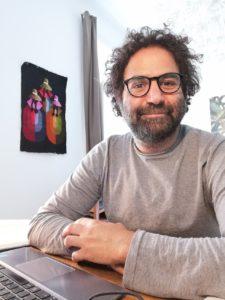
Rawad EL SKAF (Université Paris 1 Panthéon-Sorbonne) pour son article « What notion of possibility should we use in assessing scientific thought experiments? » paru dans Lato Sensu.
5ème édition 2013
Le lauréat de l’édition 2013 du prix « Jeunes chercheurs » (doté de 300 € par lauréat) est :
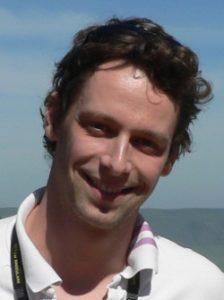
Thomas Boyer-Kassem (Université Lille 3) pour son article « Is a bird in the hand two in the bush? Or, whether scientists should publish intermediate results » paru dans Synthese.
4ème édition 2012
La lauréate de l’édition 2012 du prix « Jeunes chercheurs » (doté de 300 € par lauréat) est :
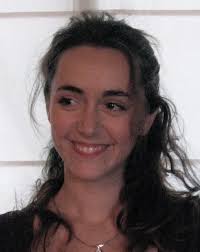
Marion Vorms (University College London), pour son article « Theorizing and Representational Practices in Classical Genetics » paru dans Biological Theory.
Les deux autres finalistes de cette édition 2012 ont été :
Thomas Boyer (Université Lille 1)
Olivier Sartenaer (Université Catholique de Louvain)
3ème édition 2011
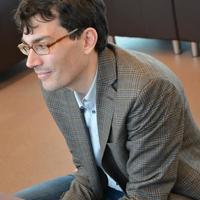
2ème édition 2010
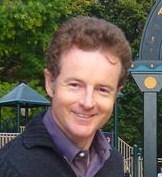

1ère édition 2009
